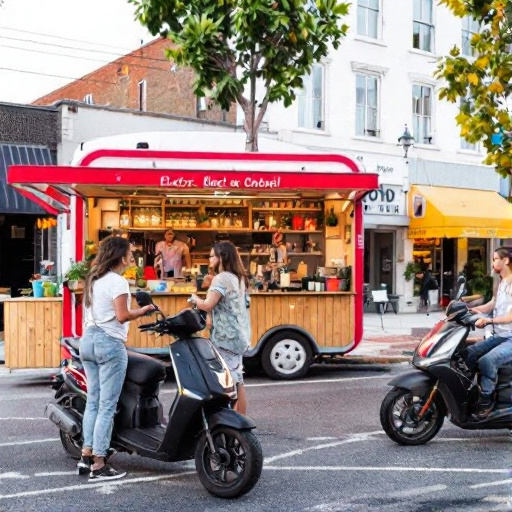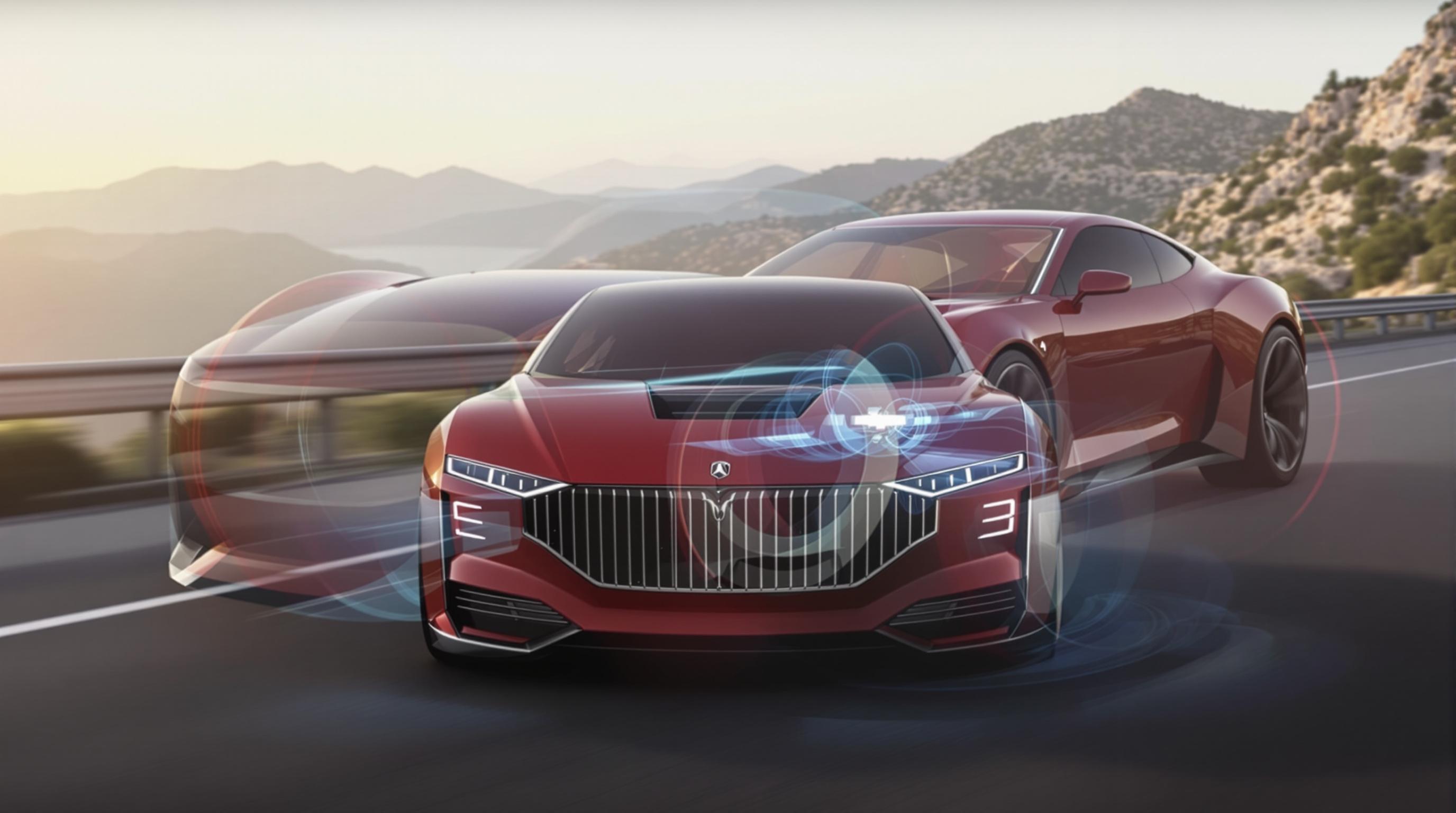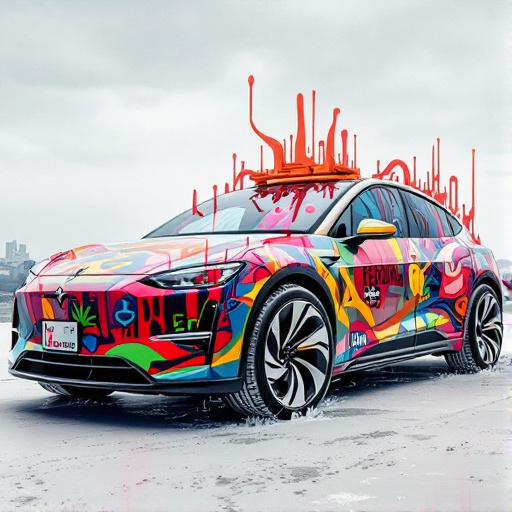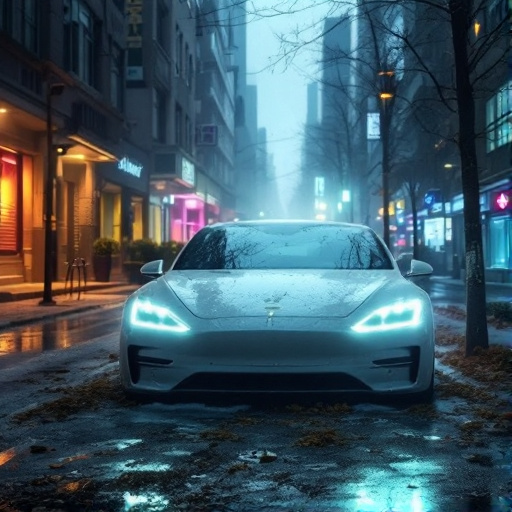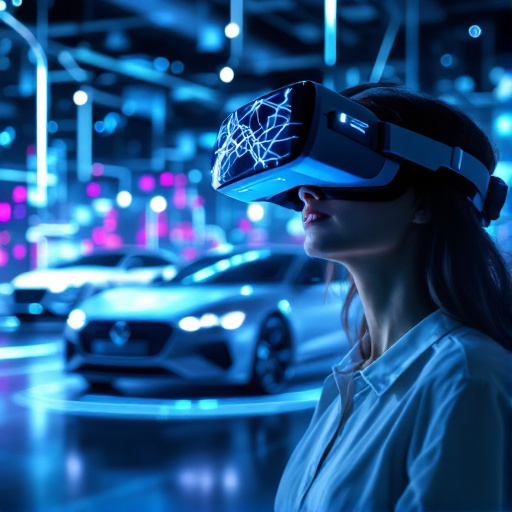Related Articles
- Charged Up! How Electric Vehicles are Reshaping Urban Wildlife Habitats and Biodiversity
- Navigating the Used Car Market: Uncovering the Secrets of 'As-Is' Sales for Savvy Buyers
- The Rise of Electric Car Pop-up Shops: A New Frontier for Urban Retail Experiences
- The Forgotten Art of DIY Car Maintenance: Rediscovering Skills in a Tech-Driven World
- Electric vs. Vintage: The Battle for Enthusiasts' Hearts in the Age of Latest Car Models
- The Rise of the 'Car Review Influencer': How Social Media is Shaping Auto Buying Decisions
The Rise of Electric Car Pop-up Shops: A New Frontier for Urban Retail Experiences
The Rise of Electric Car Pop-up Shops: A New Frontier for Urban Retail Experiences
The rise of electric car pop-up shops is transforming the urban retail landscape into a dynamic nexus of innovation and consumer engagement. As sustainability meets convenience, these retail experiences are capturing the imagination of eco-conscious consumers and reshaping cityscapes.
The New Urban Jungle
Imagine strolling down a bustling urban street and coming across a sleek, modern pop-up shop showcasing the latest electric vehicles (EVs). It’s not just a showroom; it’s an experience. Major brands like Tesla, Rivian, and newcomers like Lucid Motors are pushing the boundaries of traditional car sales by strategically placing these temporary spaces in urban areas. With innovative designs that attract the eye and entice conversations, these pop-up shops can make car shopping exciting rather than daunting.
Connecting Community and Product
Electric car pop-up shops are redefining community integration. Have you ever walked into a traditional car dealership and felt like you were in a high-pressure zone? Pop-up shops offer a relaxed atmosphere where consumers can engage without feeling overwhelmed. For instance, in cities like San Francisco, Rivian’s pop-up shop features local artisans and environmentally friendly products alongside their electric trucks. This hybrid model creates a sense of community while promoting a sustainable lifestyle.
Meeting the Modern Consumer
The average consumer is evolving. According to a study by McKinsey, 70% of consumers value sustainability in the brands they support. By establishing a temporary presence in urban areas, electric car manufacturers tap into the heart of this concern. Younger generations, particularly Gen Z and Millennials, are increasingly demanding brands reflect their values, including environmental responsibility. With the rise of electric vehicles projected to comprise 30% of global car sales by 2030 (source: BloombergNEF), urban pop-up shops are a direct response to such consumer desires.
The Numbers Speak
Statistics tell a compelling story. The global electric vehicle market was valued at approximately $162.34 billion in 2019 and is expected to reach $802.81 billion by 2027, growing at a CAGR of 22.6% (source: Fortune Business Insights). What better way to capitalize on this boom than through an engaging, tactile experience in the heart of our cities? Pop-up locations allow manufacturers to gauge interest, foster feedback, and create buzz around their vehicles in a way that traditional dealerships cannot.
Case Study: Tesla's Strategy
Consider Tesla's strategic approach. The company has embraced pop-up formats, especially in high foot-traffic areas. In 2021, they launched “Tesla Experience” in shopping malls across major cities. This pop-up shop featured virtual reality test drives and interactive displays, allowing customers to remotely drive a Tesla model and understand its various high-tech features. The result? Increased customer engagement and a growing waitlist for drives. This approach not only educates potential buyers but cultivates a dedicated customer base who actively promote the brand.
Taking It a Step Further: The Role of Technology
In the era of technology, electric car pop-up shops are not mere showcases; they are dynamic hubs of interaction. Imagine stepping into a pop-up and being greeted not by a salesperson but by a sleek virtual assistant powered by AI. Such implementations help customers explore different models, extract financing information, or even configure their dream EV without the pressure of a traditional sales pitch.
Virtual Reality: The Future is Now
VR isn’t just a gimmick; it has changed consumer interaction in significant ways. For example, WayRay, a notable startup, has successfully leveraged holograms to bring vehicle controls to life. A pop-up shop featuring this technology would allow customers to interact with an electric vehicle’s tech purely through gesture and voice recognition. “Can’t find the ignition? No problem, just say ‘start’! It practically drives itself,” might just become the motto. This immersive experience allows customers to appreciate the tech beyond just touching metal and rubber.
The Environmental Footprint
Let’s talk sustainability. Electric vehicles have a lower carbon footprint compared to conventional cars, but brick-and-mortar stores also significantly contribute to that footprint. Pop-up shops can reduce waste and transportation needs by avoiding extensive construction and instead utilizing temporary structures. According to a report by the Global Carbon Project, building operations and materials account for nearly 40% of global carbon emissions. By minimizing resources, pop-up vendors underscore their commitment to sustainability.
Pop-up Shops: A Financial Hit?
Are pop-up shops financially sustainable? Studies show they often generate more profit per square foot than traditional retail spaces. According to a report by the trade group PopUp Republic, retailers can make up to 80% more with pop-ups than with permanent locations. EV companies harness this advantage, as they sidestep the overhead costs of maintaining a full-time dealership. Such a model not only allows flexibility but also significantly reduces the time between market entry and customer acquisition.
What’s Next? The Future of Retail
In our fast-changing world, the question remains: what can we expect next? The COVID-19 pandemic has accelerated the shift towards online and experiential shopping. As electric vehicles become mainstream, we can expect to see a rise in mobile pop-up shops—think customizable vans that offer test drives and interactive displays. Imagine an electric caravan that rolls into your neighborhood for a weekend of electric-centric events. It’s not just shopping; it’s community-building and education rolled into one.
The Consumer Perspective
A 2022 survey conducted by Deloitte indicated that about 60% of consumers prefer experiences over products. This trend is driving companies to rethink how they present themselves in urban settings. For electric cars, which often create preconceived notions of high-tech, high-cost, these pop-up experiences humanize the purchase, making it relatable and accessible.
Yes, you can touch it!
Back to that original moment on the street: the ability to approach an EV and engage with its features without feeling pressured is a game-changer. It’s a joyride for the senses; the design, the technology, the potential of eco-sustainability—it’s all right there at your fingertips. Not to mention that most of these pop-up shops offer enticing perks; think free charging for your current vehicle or discounts on the new rides!
An Intersection of Culture and Commerce
What really sets these electric car pop-up shops apart is their ability to blend culture and commerce. By sponsoring local events, inviting influencers for rides, and even hosting sustainability seminars, these shops become more than just points of sale; they evolve into cultural hubs that influence how we think about transportation. BET Networks’ partnership with local EV shops in Atlanta, for instance, resulted in a series of community events that significantly boosted both foot traffic and sales conversions.
A Conclusion Driven by Change
The rise of electric car pop-up shops represents a bold step into the future of urban retail. It transcends traditional selling techniques and creates lasting conversations about sustainability, innovation, and community. These pop-up experiences cater to the modern consumer by marrying education with engagement, and they are undeniably here to stay. The question is not whether these shops will become widespread but how they will continue to evolve amidst the rapid changes in our world. One thing is for sure: as we drive towards a more sustainable future, pop-up shops will be at the forefront of this exciting revolution.
